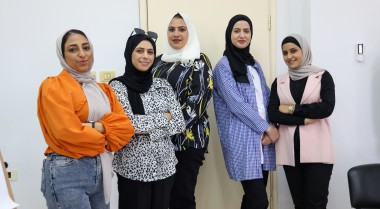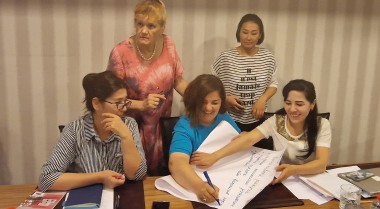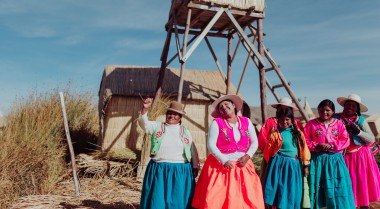
Beyond borders in Central Asia: Why is women's involvement in regional peacebuilding crucial?
"You can't just split cross-border communities apart; they're like neighbouring houses with interconnected lives. We share streets, social ties, and economic activities. We have relatives across borders. This interconnectedness lays the foundation for supporting peace efforts and rebuilding relationships. Women are often more willing to initiate dialogue, while men tend to resist, preferring to reinforce borders with gates and walls instead of fostering communication. They tend to blame each other."
This reality echoes throughout the Fergana Valley, where border tensions have persisted since the Soviet Union's dissolution and the subsequent division among Kyrgyzstan, Tajikistan, and Uzbekistan.
"Without communication, life in the border areas won't see improvement. We still rely on shared natural resources, especially water, which can fuel conflicts. We must maintain communication and seek positive resolutions concerning our shared natural resources. Cutting off relations isn't constructive, sustainable, or conducive to peace. Such actions will only perpetuate fragility and fear and threaten our safety. And this is why women from three countries, Kyrgyzstan, Tajikistan, and Uzbekistan, play a crucial role in fostering peace. They understand that it's not possible to live in fear and hate forever. They understand that we must talk to each other."
Tajyka and the organisation she leads, Foundation for Tolerance International (FTI), spearhead a seven-month project bringing together women from Kyrgyzstan, Tajikistan, and Uzbekistan. The goal is to foster dialogue among them and empower them to influence high-level decision-making and peace processes throughout Central Asia significantly.
"Political will to meaningfully include women is one main challenge. If there were clear directives from high-level decision-makers such as the president, ensuring women's participation in peace processes would be more feasible. However, in the current landscape, particularly in Kyrgyzstan, we see a concerning lack of women's engagement, with even more women being excluded from decision-making roles."
However, there is another challenge that Tajyka and her colleagues seek to address.
"It's about gender stereotypes or norms, especially from traditional communities and religious beliefs, suggesting that women shouldn't play an active role in public life and should confine themselves to the home."
Recognising the deep interconnections among communities impacted by border conflicts and their common challenges, Tajyka and her colleagues emphasise the necessity of a regional approach towards building sustainable peace in the Fergana Valley.
"A regional approach entails collaboration and engaging in joint activities. It involves sharing common values, ideas, and willingness to work together."
But this approach comes with risks.
"We have fears and worries; for example, in Tajikistan, discussing peace in border areas or interactions with Kyrgyzstan can pose risks. Government control over such activities may lead to challenges, such as hindering the activities of our partner CSO organisations if the government does not approve any joint initiatives. However, despite these risks, our colleagues from Tajikistan were eager to engage in the project because we share the same values and commitments."
The project encompassed consultations with local women in Kyrgyzstan, Tajikistan, and Uzbekistan, culminating in a regional meeting held on 27 February 2024 in Tashkent, the capital of Uzbekistan. All consultations embraced a trauma-sensitive approach to facilitate dialogue sessions, a methodology introduced to FTI by GPPAC members from the Western Balkans.
"It's truly an achievement to have women and members of conflict-affected communities gathered in one room, engaging in dialogue and even taking mixed group photos. It's noteworthy that there were no objections to speaking in our respective languages, such as Kyrgyz, Tajik, or Uzbek, indicating acceptance and mutual respect. This level of cooperation is particularly remarkable considering the history of violent conflict; it demonstrates our progress towards fostering understanding and unity."
The meeting in Tashkent is the stepping stone towards bringing cross-border communities together and building a sustainable pace. During the meeting, the women presented concrete recommendations from consultations in the three countries to decision-makers and policymakers, laying out concrete ideas for meaningful change and collaboration across borders.
"I look forward to engaging with UN agencies, the EU, and USAID as they play key roles in peacebuilding in Central Asia, and I aim to draw their attention to the findings of our consultations. While some donors prefer to fund cultural activities in Central Asia to advance peacebuilding efforts, we must adopt a more comprehensive strategy that considers trauma, economic perspectives, and historical relations."
The seven-month project "Women Leading Peace: Raising Women's Voices in Peace Processes in Central Asia" is funded by the United Nations Women's Peace and Humanitarian Fund (WPHF) Rapid Response Window for Women's Participation in Peace Processes and the Implementation of Peace Agreements. It addresses urgent funding gaps with targeted, short-term support to increase women's participation in peace processes and the implementation of peace agreements.
WPHF is a flexible financing tool supporting quality interventions to enhance the capacity of local women to prevent conflict, respond to crises and emergencies and seize key peacebuilding opportunities.



